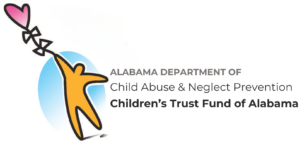 What leads someone to develop a substance abuse disorder? Is it his or her circumstances, or by chance? Was that person always destined to become addicted to drugs or alcohol? Perhaps there were signs that hinted at this misfortune, or particular behaviors that could have been managed.
What leads someone to develop a substance abuse disorder? Is it his or her circumstances, or by chance? Was that person always destined to become addicted to drugs or alcohol? Perhaps there were signs that hinted at this misfortune, or particular behaviors that could have been managed.
It’s no surprise that people worried about developing an addiction look for clues and traits that point to that path. The fear of substance abuse is very real. However, the idea of an addictive personality, or a series of characteristics that definitively indicate a predisposition to addiction, is far from valid. The following article will examine the facts and fictions surrounding addictive personality and its relationship to substance abuse.
Addictive Personality Traits
Previously, people who suffered from addiction were thought to display the following traits:
- Obsessive or compulsive thoughts or actions
- Risky decision-making tendencies, in spite of the consequences
- Difficulty feeling satisfied
- Excessive attachment to electronics, social media, video games, etc.
- Self-soothing using an activity, behavior or food (e.g. emotional eating, extreme thrill-seeking)
It was assumed that anyone with these characteristics would develop a substance abuse disorder. However, most professionals these days agree that there is no single personality type common to people with addiction. In fact, individuals who do have a problem with substance abuse can demonstrate a wide array of personality traits. For example, some may have a history of impulsive or compulsive behaviors such as lying or taking risks. Others could be described as careful planners, who speak and act with calculated intent.
Some Legitimate Links
Even though the above traits could be present in those who eventually experience substance abuse, none of them are definitive signs that an individual will end up with an addiction. However, it is worth noting that there are some recognized risk factors associated with a substance abuse disorder, including:

- An inability to self-regulate behaviors, thoughts or emotions
- An apathetic outlook on life (lack of enthusiasm, interest or concern)
- Obsessive or compulsive tendencies
- Persistent risk-taking
- A lack of connection with others
- Family history of substance abuse or mental illness
- Struggling with a mental health problem
These circumstances possess ties to certain personality traits. For instance, someone who deals with anxiety might overindulge in video games to escape his or her feelings. It is possible that this person may have a higher risk of developing an addiction, but the link would be the underlying mental health disorder, not his or her tendency to play video games in excess. Furthermore, just because this person has anxiety does not mean he or she will fall prey to substance abuse.
Excessive Preoccupation or Addiction?
Part of what makes addiction so difficult to understand is the similarities it shares with normal behaviors. People often say they are addicted to caffeine or their phones, but many psychologists would agree that these predilections are not true addictions — instead, they would be considered a strong preference or perhaps an excessive preoccupation.
Those who are truly at risk of a substance abuse disorder are thought to have a difficult time regulating behaviors, even harmful ones. For example, a person in danger of developing an addiction wouldn’t be able to stop obsessing over a certain behavior, even if it threatened his or her job, relationships or life.
The Addictive Personality: An Unreliable Mix of Reality and Fiction
While the idea of an addictive personality seems comforting, there is too much evidence against it. Addiction is a disease that knows no discriminators where personality types are concerned; a person who is quiet, anxious and reserved is just as much at risk as someone who is outspoken, confident and ready to take risks. Understanding the true risks of substance abuse is the key to making informed decisions and recognizing when someone you know could need help.
Author bio: AnnMarie Fauske is Vice President of Marketing for Symetria Recovery. She has PR, marketing and sales industry experience having worked for international public relations agencies, Boys & Girls Clubs of Chicago, the Paramount Theatre, and Kane County Forest Preserve District. Fauske’s favorite credo: You make a living by what you get. You make a life by what you give.









